Fleurs du Mal Magazine


.jpg)





Clément Pansaers
(1885-1922)
L’APOLOGIE DE LA PARESSE 1917
Chapitre V
![]()
KEMP=MAG POETRY MAGAZINE
More in: Pansaers, Clément
.jpg)
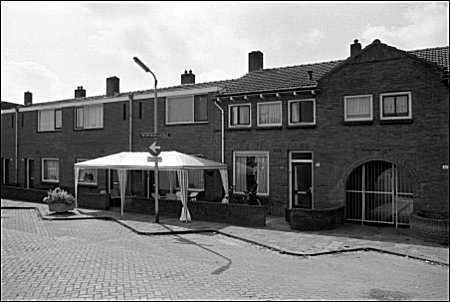

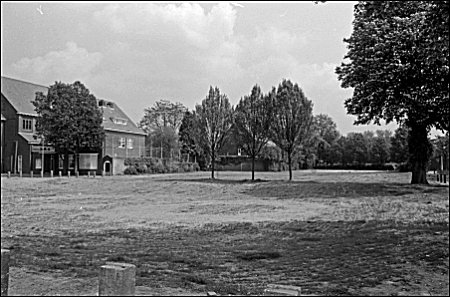
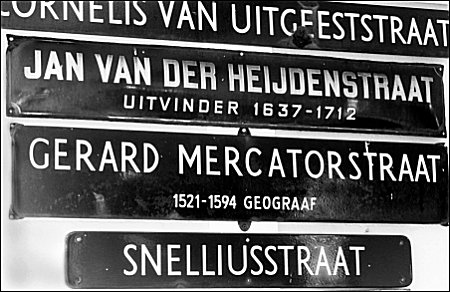
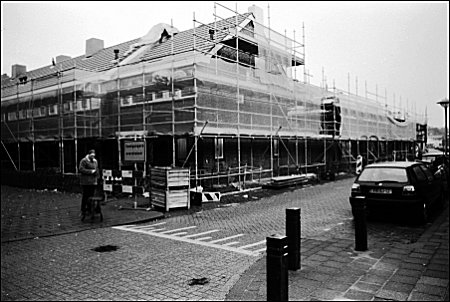

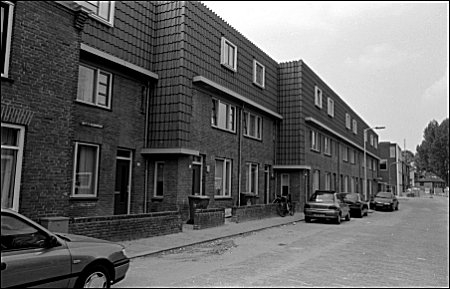
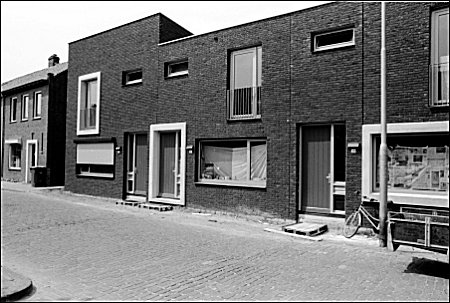
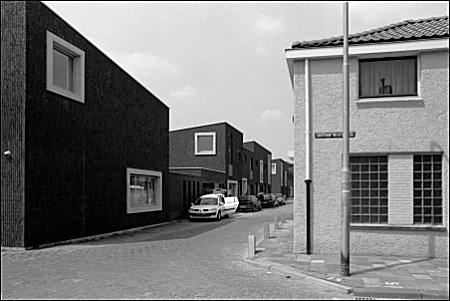

Harrie Janssens & Jef van Kempen
Het gevoel dat je hier thuishoort
Een geschiedenis van de Trouwlaan,
Zeehelden- en Uitvindersbuurt in Tilburg
Livius Boekhandel Tilburg
ISBN 90-807430-2-X
.jpg)
© H. Janssens
kemp=mag poetry magazine
More in: Harrie Janssens Photos, OLV van de Veestraat
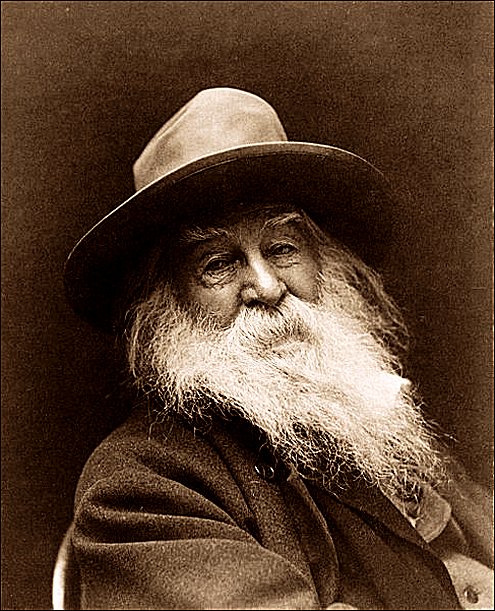
W a l t W h i t m a n
(1819-1892)
T h e P o e t
1
Now list to my morning’s romanza;
To the cities and farms I sing, as they spread in the sunshine before me.
2
A young man came to me bearing a message from his brother;
How should the young man know the whether and when of his brother?
Tell him to send me the signs.
And I stood before the young man face to face, and took his right hand in
my left hand, and his left hand in my right hand,
And I answered for his brother, and for men, and I answered for THE POET,
and sent these signs.
Him all wait for–him all yield up to–his word is decisive and final,
Him they accept, in him lave, in him perceive themselves, as amid light,
Him they immerse, and he immerses them.
Beautiful women, the haughtiest nations, laws, the landscape, people,
animals,
The profound earth and its attributes, and the unquiet ocean (so tell I my
morning’s romanza),
All enjoyments and properties, and money, and whatever money will buy,
The best farms–others toiling and planting, and he unavoidably reaps,
The noblest and costliest cities–others grading and building, and he
domiciles there,
Nothing for any one but what is for him–near and far are for him,–the
ships in the offing,
The perpetual shows and marches on land, are for him, if they are for
anybody.
He puts things in their attitudes;
He puts to-day out of himself, with plasticity and love;
He places his own city, times, reminiscences, parents, brothers and
sisters, associations, employment, politics, so that the rest never
shame them afterward, nor assume to command them.
He is the answerer;
What can be answered he answers–and what cannot be answered, he shows how
it cannot be answered.

3
A man is a summons and challenge;
(It is vain to skulk–Do you hear that mocking and laughter? Do you hear
the ironical echoes?)
Books, friendships, philosophers, priests, action, pleasure, pride, beat up
and down, seeking to give satisfaction;
He indicates the satisfaction, and indicates them that beat up and down
also.
Whichever the sex, whatever the season or place, he may go freshly and
gently and safely, by day or by night;
He has the pass-key of hearts–to him the response of the prying of hands
on the knobs.
His welcome is universal–the flow of beauty is not more welcome or
universal than he is;
The person he favours by day or sleeps with at night is blessed.
Every existence has its idiom–everything has an idiom and tongue;
He resolves all tongues into his own, and bestows it upon men, and any man
translates, and any man translates himself also;
One part does not counteract another part–he is the joiner–he sees how
they join.
He says indifferently and alike, "How are you, friend?" to the President
at his levee,
And he says, "Good-day, my brother!" to Cudge that hoes in the sugar-
field,
And both understand him, and know that his speech is right.
He walks with perfect ease in the Capitol,
He walks among the Congress, and one representative says to another, "Here
is our equal, appearing and new."
4
Then the mechanics take him for a mechanic,
And the soldiers suppose him to be a soldier, and the sailors that he has
followed the sea,
And the authors take him for an author, and the artists for an artist,
And the labourers perceive he could labour with them and love them;
No matter what the work is, that he is the one to follow it, or has
followed it,
No matter what the nation, that he might find his brothers and sisters
there.
The English believe he comes of their English stock,
A Jew to the Jew he seems–a Russ to the Russ–usual and near, removed from
none.
Whoever he looks at in the travellers’ coffee-house claims him;
The Italian or Frenchman is sure, and the German is sure, and the Spaniard
is sure, and the island Cuban is sure;
The engineer, the deck-hand on the great lakes, or on the Mississippi, or
St. Lawrence, or Sacramento, or Hudson, or Paumanok Sound, claims him.
The gentleman of perfect blood acknowledges his perfect blood;
The insulter, the prostitute, the angry person, the beggar, see themselves
in the ways of him–he strangely transmutes them,
They are not vile any more–they hardly know themselves, they are so grown.
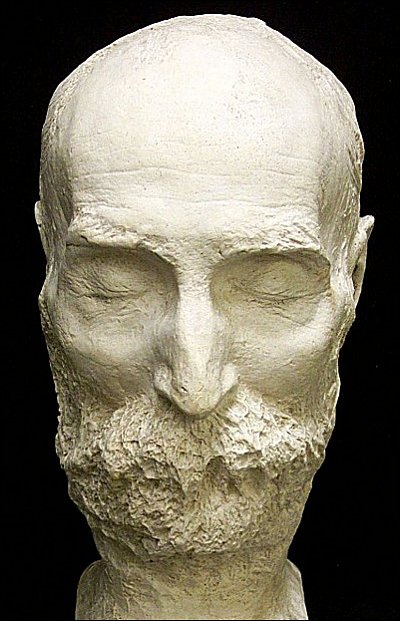
Walt Whitman poem: The Poet
KEMP=MAG poetry magazine
More in: Whitman, Walt
.jpg)
.jpg)
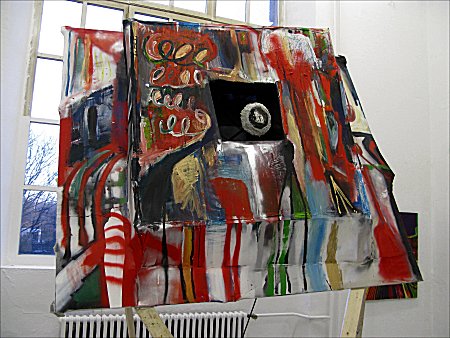
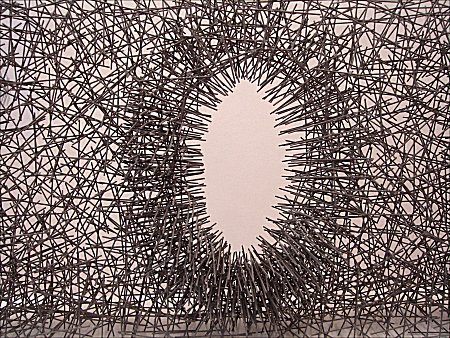
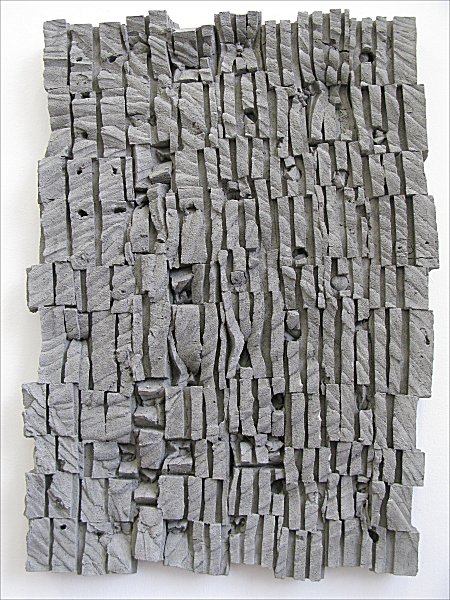
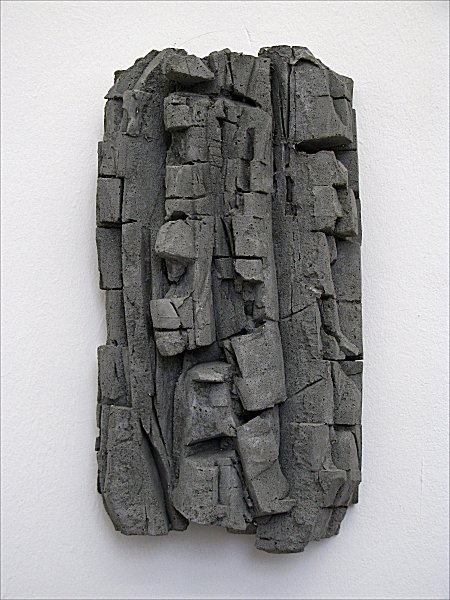
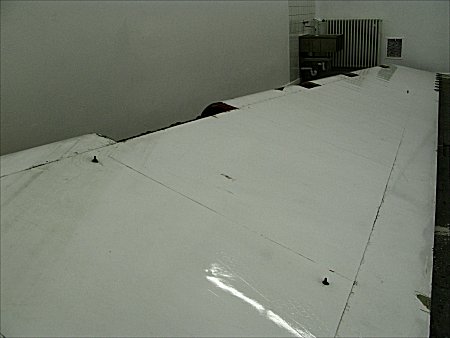
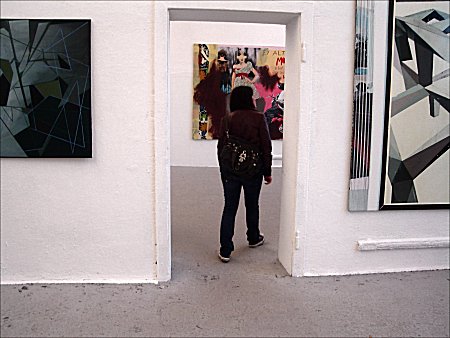
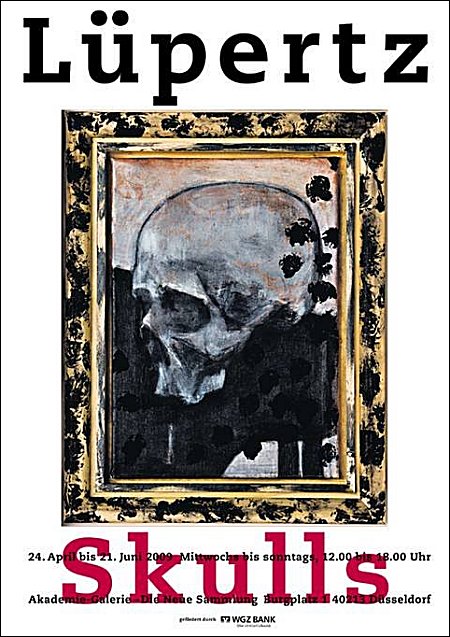
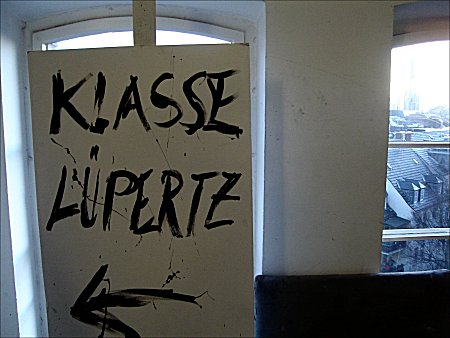
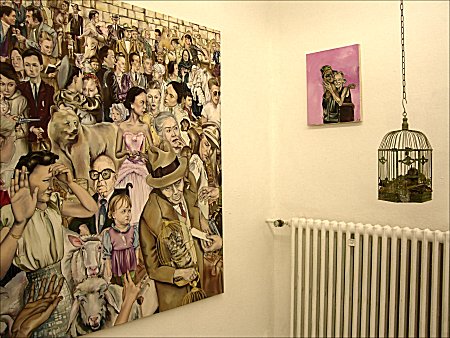
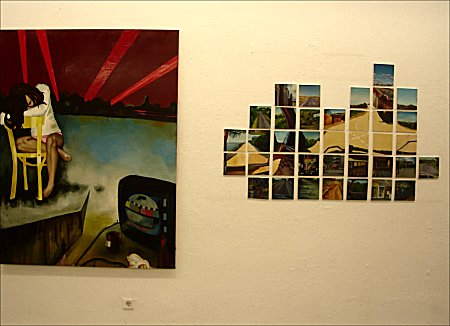
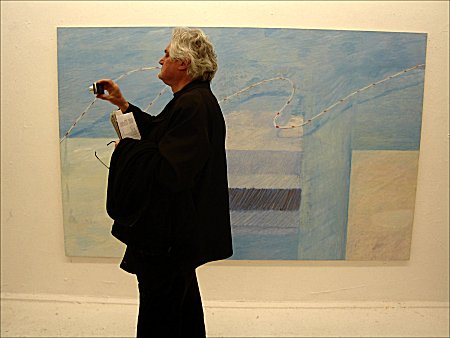
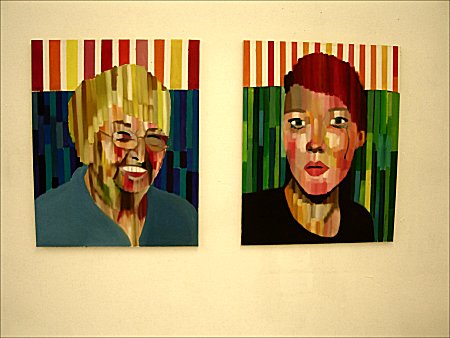
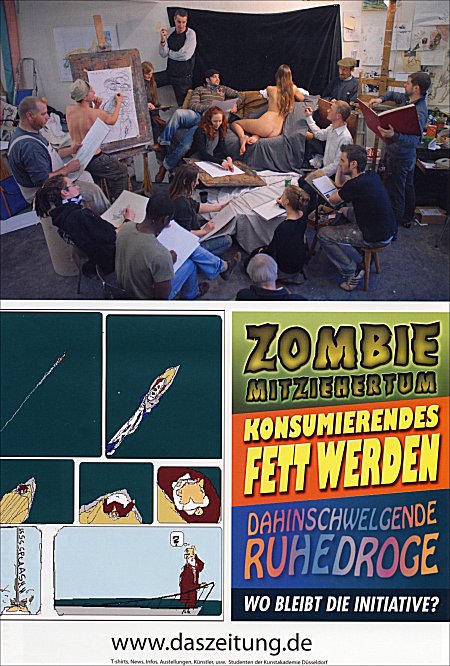
Kunstakademie Düsseldorf
RUNDGANG 2009
Vierter Teil
photos anton & joseph K.
![]()
fleursdumal.nl magazine – magazine for art & literature
More in: FDM Art Gallery, Galerie Deutschland
.jpg)
A r t h u r C r a v a n
(1887-1918)
H I E !
Quelle âme se disputera mon corps?
J’entends la musique:
Serai-je entraîné?
J’aime tellement la danse
Et les folies physiques
Que je sens avec évidence
Que, si j’avais été jeune fille,
J’eusse mal tourné.
Mais, depuis que me voilà plongé
Dans la lecture de cet illustré,
Je jurerais n’avoir vu de ma vie
D’aussi féeriques photographies:
L’océan paresseux berçant les cheminées,
Je vois dans le port, sur le pont des vapeurs,
Parmi des marchandises indéterminées,
Les matelots se mêler aux chauffeurs;
Des corps polis comme des machines,
Mille objets de la Chine,
Les modes et les inventions;
Puis prêts à traverser la ville,
Dans la douceur des automobiles,
Les poètes et les boxeurs.
Ce soir, quelle est ma méprise,
Qu’avec tant de tristesse,
Tout me semble beau?
L’argent qui est réel,
La paix, les vastes entreprises,
Les autobus et les tombeaux;
Les champs, le sport, les maîtresses,
Jusqu’à la vie inimitable des hôtels.
Je voudrais être à vienne et à Calcutta,
Prendre tous les trains et tous les navires,
Forniquer toutes les femmes et bâfrer tous les plats.
Mondain, chimiste, putain, ivrogne, musicien, ouvrier, peintre, acrobate, acteur;
Vieillard, enfant, escroc, voyou, ange et noceur;
Millionnaire, bourgeois, cactus, girafe ou corbeau;
Lâche, héros, nègre, singe, Don Juan, souteneur, lord, paysan, chasseur, industriel,
Faune et flore:
Je suis toutes les choses, tous les hommes et tous les animaux!
.jpg)
Que faire?
Essayons du grand air,
Peut-être y pourrai-je quitter
Ma funeste pluralité!
Et tandis que la lune,
Par delà les marronniers,
Attelle ses lévriers,
Et, qu’ainsi qu’en un kaléidoscope,
Mes abstractions
Elaborent les variations
Des accords
De mon corps,
Que mes doigts collés
Au délice de mes clés
Absorbent de fraîches syncopes,
Sous des motions immortelles
Vibrent mes bretelles;
Et, piéton idéal
Du Palais-Royal,
Je m’enivre avec candeur
Même des mauvaises odeurs.
Plein d’un mélange
D’éléphant et d’ange,
Mon lecteur, je balade sous la lune
Ta future infortune,
Armée de tant d’algèbre,
Que, sans désirs sensuels,
J’entrevois, fumoir du baiser,
Con, pipe, eau, Afrique et repos funèbre,
Derrière les stores apaisés,
Le calme des bordels.
Du baume, ô ma raison!
Tout Paris est atroce et je hais ma maison.
Déjà les cafés sont noirs.
Il me reste, ô mes hystéries!
Que les claires écuries
Des urinoirs.
Je ne puis plus rester dehors.
Voici ton lit; sois bête et dors.
Mais, dernier des locataires,
Qui se gratte tristement les pieds,
Et, bien que tombant à moitié,
Si j’entendais sur la terre
Retentir les locomotives,
Que mes âmes pourtant redeviendraient attentives!
.jpg)
KEMP=MAG poetry magazine
More in: Cravan, Arthur

![]()
I E R S E H U M O R
![]()
door Lauran Toorians
Johannes Scotus Eriugena (c. 810-877) geldt als een van de grootste geleerden van de negende eeuw. Hij werkte onder andere als leraar aan de paleisschool van Karel de Kale (reg. 843-877) en stond bekend als een van de zeer weinigen in West-Europa die in die tijd het Grieks beheersten. Een getuigenis van deze kennis bleef in zijn eigen handschrift bewaard in een manuscript dat wordt bewaard in de Universiteitsbibliotheek in Leiden. Uit zijn naam blijkt dat hij een Gael (‘Scotus’) was, geboren in Ierland (‘Eriugena’). Zoals normaal was in geleerde kringen van zijn tijd, schreef hij in het Latijn, wat hem niet belette daarin heel erg Iers te zijn. Het volgende grafschrift dat hij maakte voor de toen nog volop in leven zijnde aartsbisschop Hincmar van Reims getuigt daarvan:
Hic iacet Hincmarus, cleptes vehementur avarus
Hoc solum gessit nobile, quod periit.
Hier ligt Hincmar, een uiterst gierig kleptomaan,
zijn enige daad van eer: dat hij is heengegaan.
Dat Eriugena spot met de gierigheid van zijn vroegere vriend Hincmar, past volledig in het beeld dat we hebben van de bard die zijn patroon te kijk zet wanneer deze zich niet passend gedraagt. Het maken van een lijkrede op een nog levend persoon is in elk geval in de latere middeleeuwen in Wales ook niet ongewoon – al betreft het in die gevallen wel steeds een lovende tekst. En ten slotte is de formule Hic iacet… typerend voor grafschriften die we in de Keltische gebieden uit de vroege middeleeuwen kennen. Kortom: nogal wat Keltisch in twee regeltjes Latijn.
L e e s m e e r…..
![]()
Lees de volledige tekst van Lauran Toorians:
I E R S E H U M O R
![]()
KEMP=MAG poetry magazine – magazine for art & literature
© Lauran Toorians
More in: CELTIC LITERATURE, Lauran Toorians
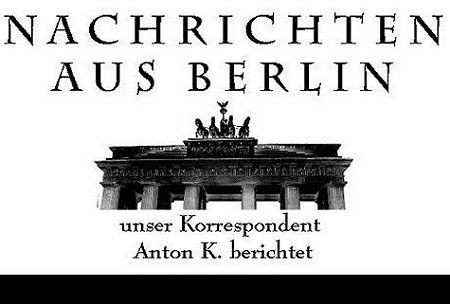
ICH WILL MEIN GELD ZURÜCK !!!

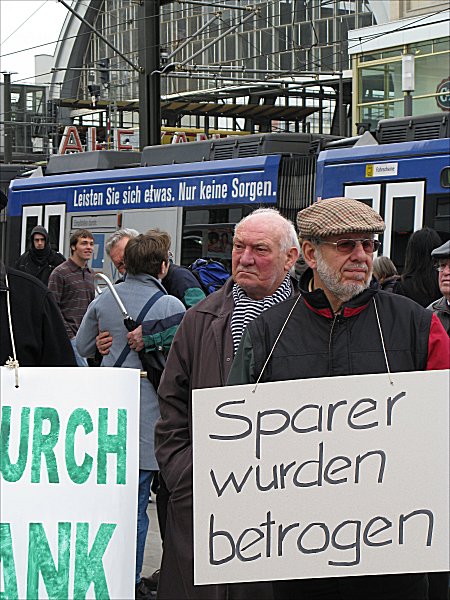
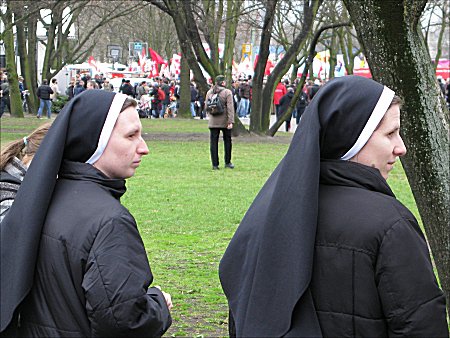
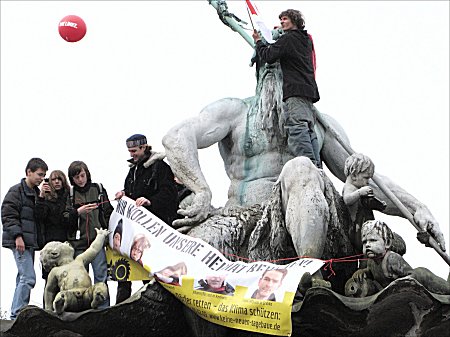
.jpg)
.jpg)
.jpg)
.jpg)
.jpg)
.jpg)
.jpg)
.jpg)
.jpg)
.jpg)
.jpg)
.jpg)
.jpg)
NACHRICHTEN AUS BERLIN
unser Korrespondent Anton K. berichtet:
Ich will mein Geld zurück !!!
Demonstration gegen Auswirkungen der Finanzkrise
fleursdumal.nl magazine – magazine for art & literature
© KEMP=MAG March 2009
More in: MUSEUM OF PUBLIC PROTEST, Nachrichten aus Berlin
.jpg)
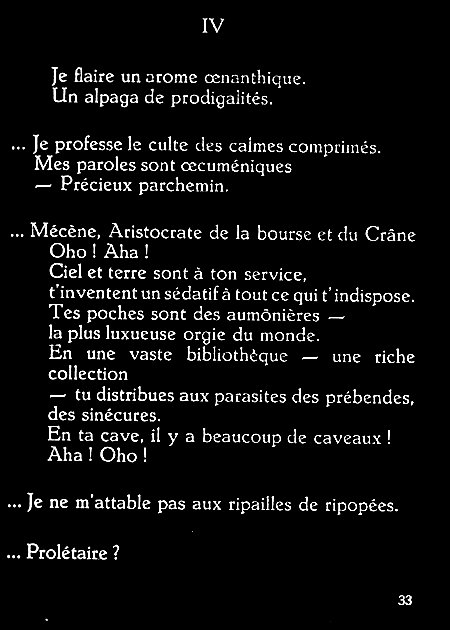
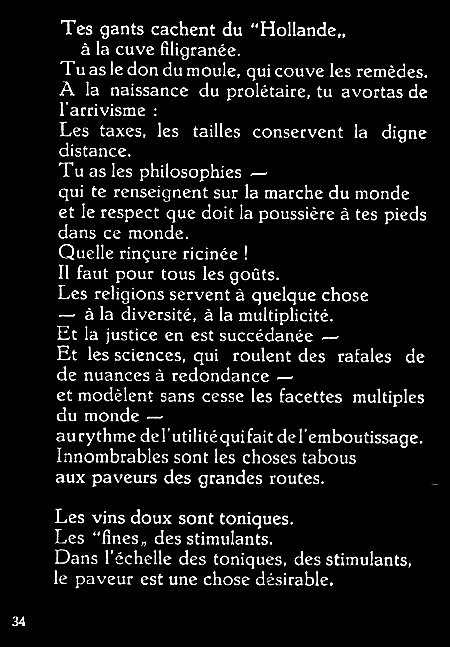
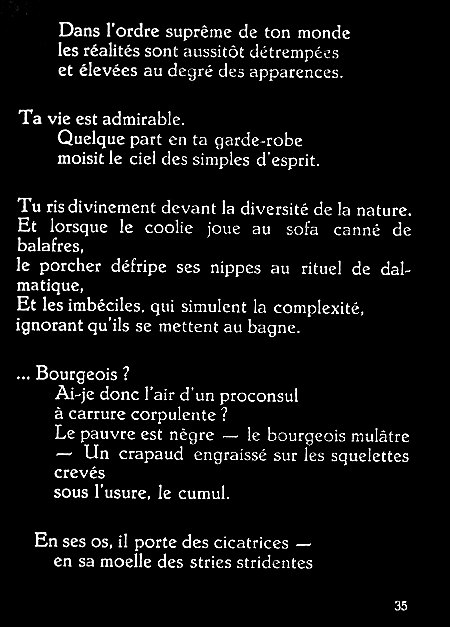
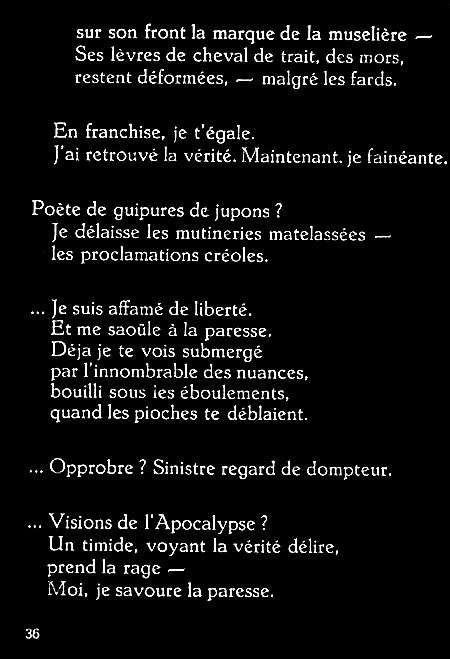

Clément Pansaers
(1885-1922)
L’APOLOGIE DE LA PARESSE 1917
Chapitre IV
![]()
KEMP=MAG POETRY MAGAZINE
More in: Pansaers, Clément

Ed Schilders over
poëziebloemlezing Henny Vrienten
Een jonge vrouw verdrinkt zich circa 1880 in de Seine. Bij gebrek aan een naam wordt ze ‘De onbekende van de Seine’ genoemd. De glimlach op haar dode gelaat zal tientallen schrijvers fascineren. In Zwaan kleef aan vermeldt samensteller Henny Vrienten dat er minstens acht Nederlandse dichters verzen aan haar gewijd hebben. Vier daarvan zijn in het boek opgenomen. Daarmee is ‘De onbekende van de Seine’ een voorbeeld van Vrientens indrukwekkende belezenheid, maar niet – hoe mooi de gedichten ook aan elkaar kleven – typisch voor de opzet van de bundel.
Het grootste deel van Zwaan kleef aan bestaat uit gedichten die ‘onbedoeld’ naar elkaar verwijzen. Dat levert verrassende en meestal spannende combinaties op. Pierre Kemp en Emily Dickinson. Wie had dat gedacht? Hij over zijn ‘Nachtverlangen’, zij over haar ‘Wild night!’ Of de bijna boosaardige combinatie van Felix Timmermans’ zoetgevooisde lentegedicht ‘Uitkoom’ met de cynische ‘Lilalente’ van Ilja Leonard Pfeijffer. De opzet beperkt zich niet tot zulke duo’s. ‘Poëzie lezen is voor mij een reis van gedicht naar gedicht’, schrijft Vrienten in de inleiding. Zo gaan onderwerpen en motieven reeksen vormen. Leerlingen in een schoolklas, de schooljuf, het kind, vaderschap. Je hebt nog maar net met M. Nijhoff langs de waterkant gezeten, of Anthonie Donker haalt een glimlach uit de Seine op.
Behalve keuzeheer is Henny Vrienten ook de reisleider die de monumenten en curiosa van commentaar voorziet. Nauwelijks analyserend maar met des te meer ruimte voor bewondering en koestering. Dat werkt zeer aanstekelijk. De lezer zal soms even een excursietje willen maken naar de eigen boekenkast. Na het gedicht waarin Ingmar Heytze een spijkerbroek wil zijn, kon ik het niet laten Gerrit Krols ‘Over het uittrekken van een broek’ nog eens te bezoeken. Waarna ik probleemloos weer kon instappen bij het kontje ‘in een hele strakke broek’ dat Martin Bril in ‘Groningen’ zag.
Zwaan kleef aan – Een kettingreactie
Henny Vrienten
De Harmonie; 95 pagina’s; 16 euro
ISBN 978 90 6169 880 7
Ed Schilders over poëziebloemlezing Henny Vrienten
Eerder gepubliceerd in de boekenbijlage Cicero van de Volkskrant
© Ed Schilders
fleursdumal.nl magazine
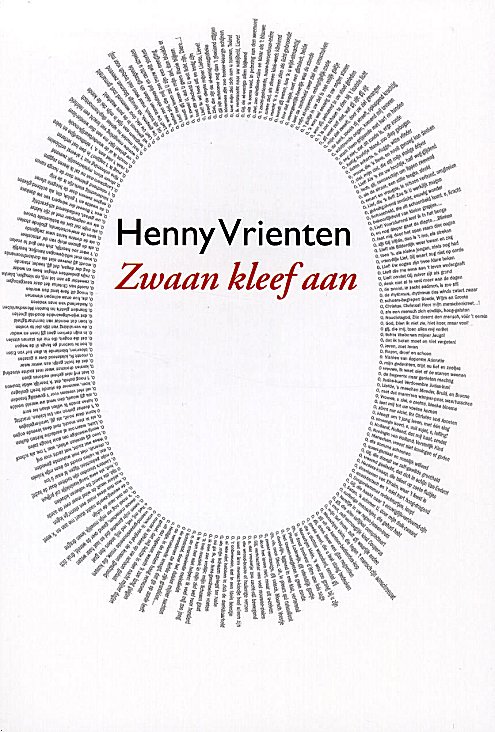
More in: Archive U-V, Ed Schilders
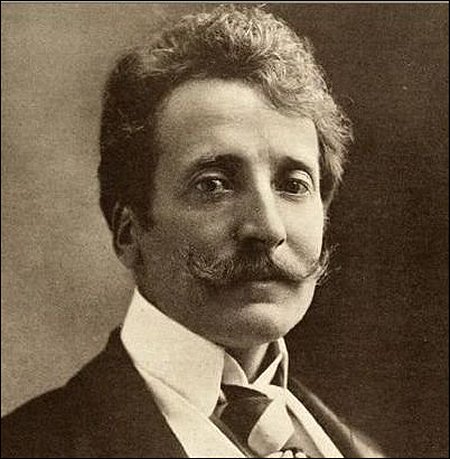
Georges Rodenbach
(1855-1898)
S e s Y e u x
Ses yeux où se blottit comme un rêve frileux,
Ses grands yeux ont séduit mon âme émerveillée,
D’un bleu d’ancien pastel, d’un bleu de fleur mouillée,
Ils semblent regarder de loin, ses grands yeux bleus.
Ils sont grands comme un ciel tourmenté que parsème
– Par les couchants d’automne et les tragiques soirs –
Tout un vol douloureux de longs nuages noirs ;
Grands comme un ciel, toujours mouvant, toujours le même !
Et cependant des yeux, j’en connais de plus beaux
Qui voudraient sur mes pas promener leurs flambeaux,
Mais leur éclat répugne à ma mélancolie.
Les uns ont la chaleur d’un ciel oriental
D’autres le mol azur des lointains d’Italie
Mais les siens me sont chers ainsi qu’un ciel natal.
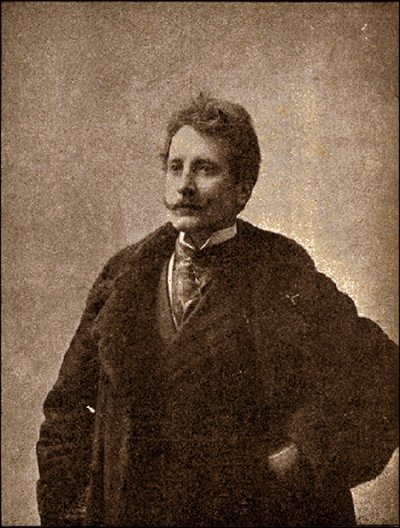
Georges Rodenbach poème: Ses Yeux
KEMPIS MAG poetry magazine
More in: Archive Q-R
.jpg)
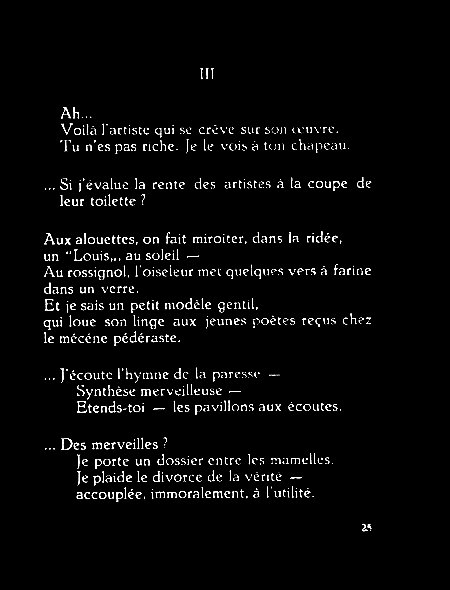
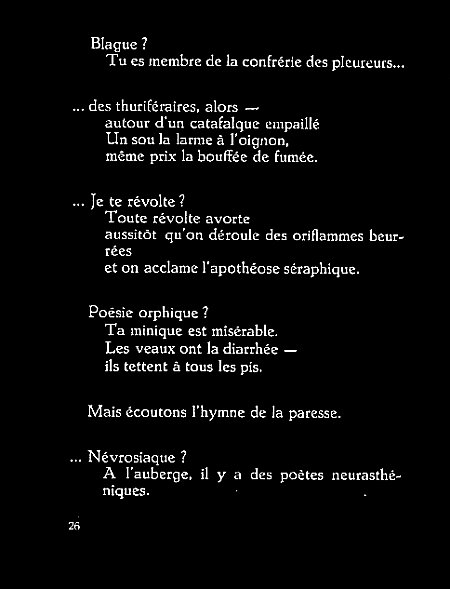


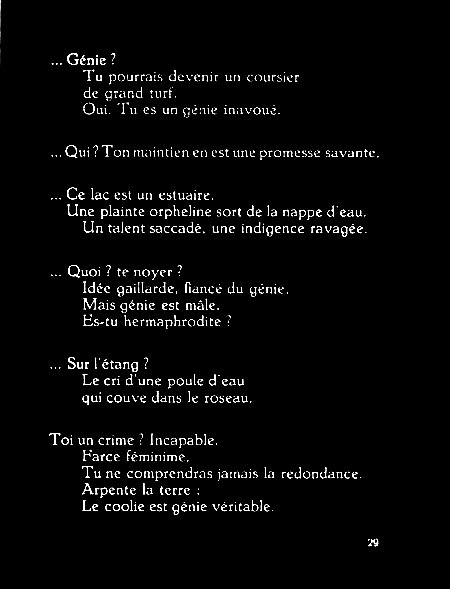

.jpg)

Clément Pansaers
(1885-1922)
L’APOLOGIE DE LA PARESSE 1917
Chapitre III
![]()
KEMP=MAG POETRY MAGAZINE
More in: Pansaers, Clément
.jpg)
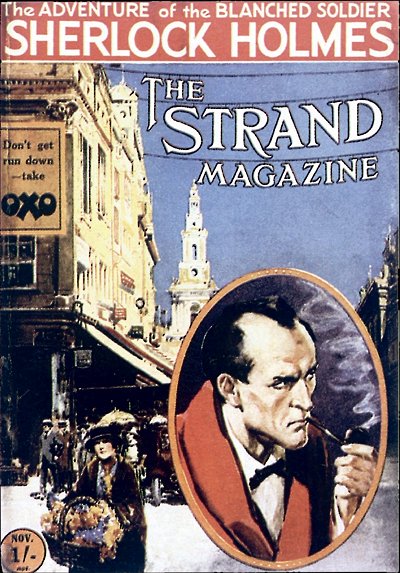







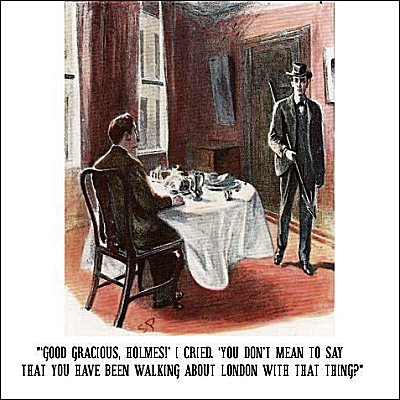

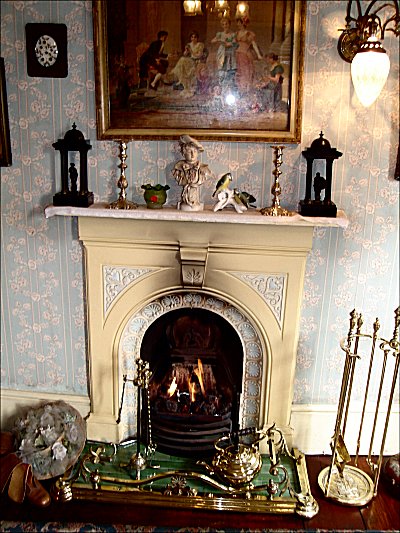
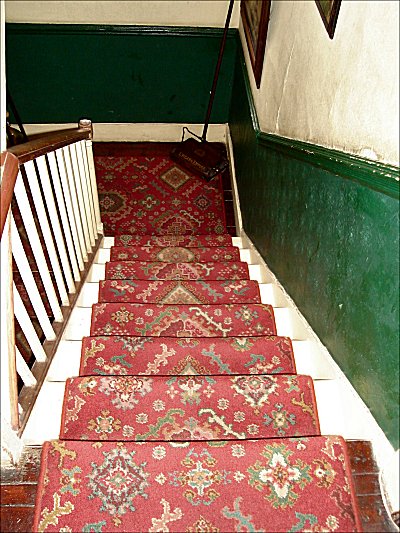
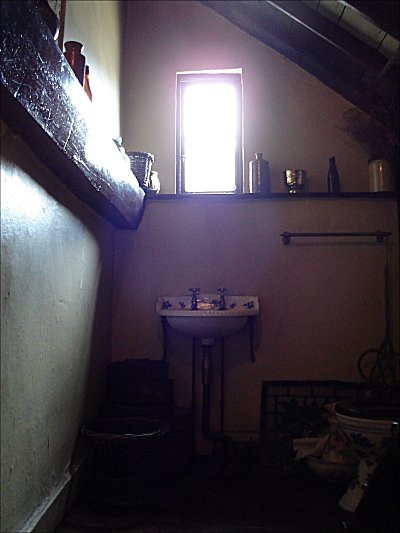




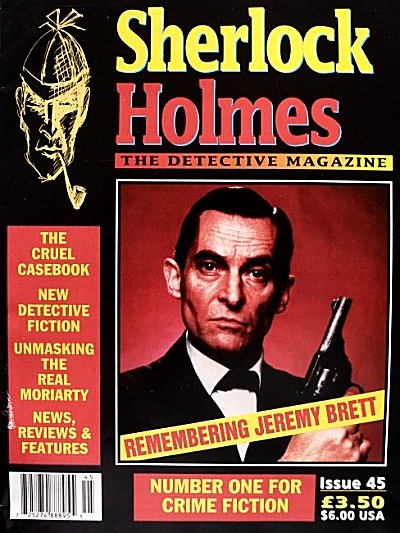
.jpg)
Museum of Literary Treasures
SHERLOCK HOLMES part III
The Sherlock Holmes Museum
Bakerstreet – LONDON
![]()
photos: jefvankempen
Illustrations: Sidney Paget
FLEURSDUMAL.NL MAGAZINE
More in: Arthur Conan Doyle, Museum of Literary Treasures, Sherlock Holmes Theatre
Thank you for reading Fleurs du Mal - magazine for art & literature